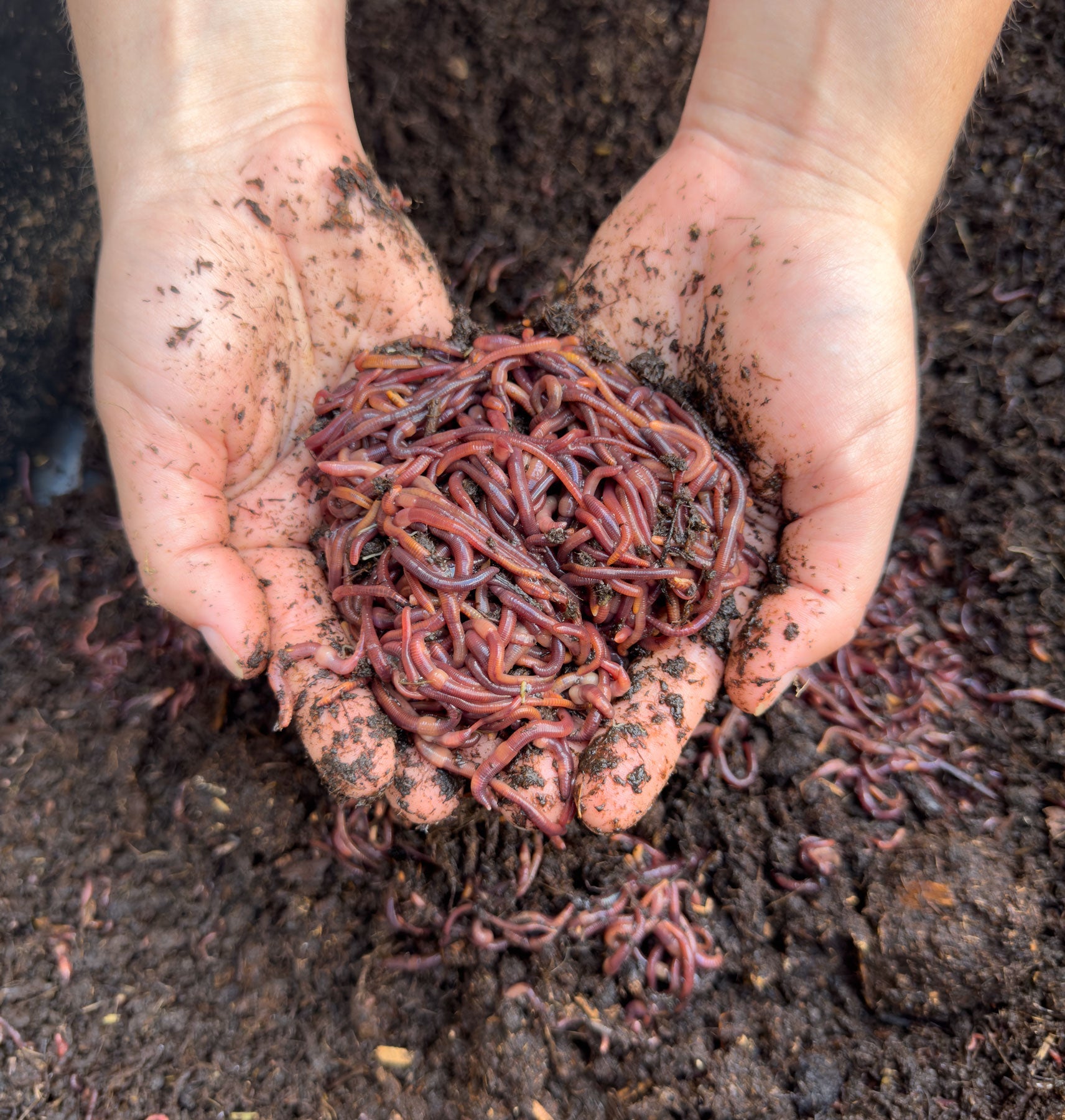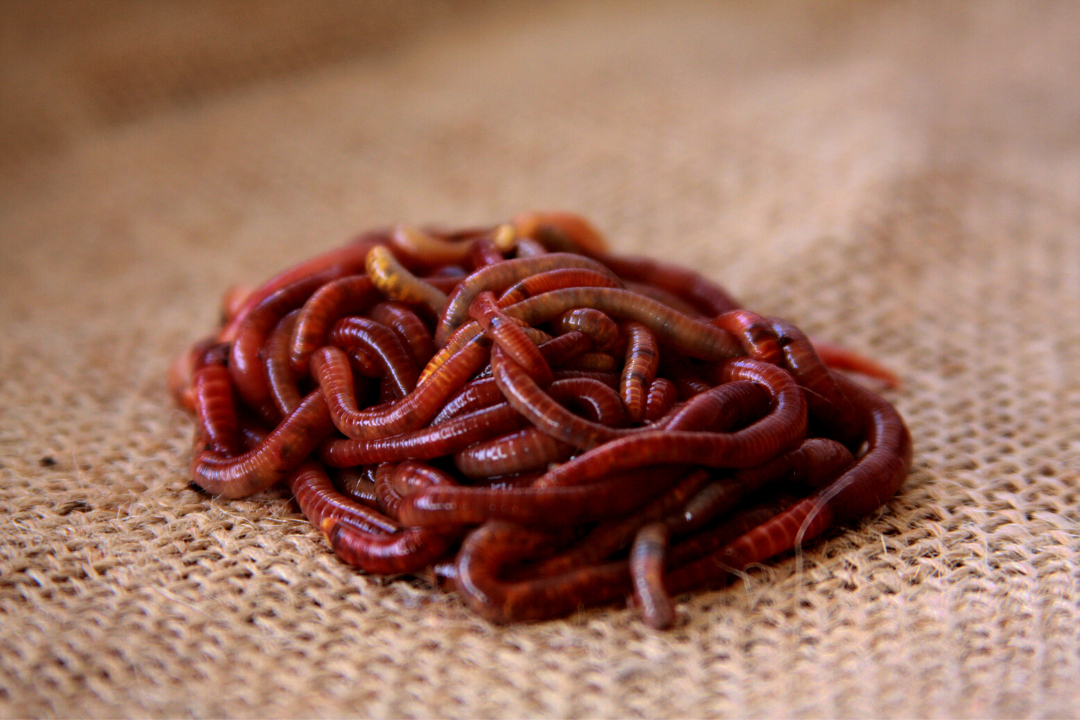Lake Hickory Bait Provides the Solutions You Need for a Perfect Lawn
Lake Hickory Bait Provides the Solutions You Need for a Perfect Lawn
Blog Article
The Amazing Globe of Red Wigglers: Increase Your Dirt Fertility Today
These tiny yet efficient microorganisms change organic waste right into valuable worm spreadings, significantly enhancing dirt health and advertising lasting practices. As we check out the advantages of vermicomposting and the sensible steps to develop an effective worm bin, the possible impact of these worms on your gardening success comes to be increasingly obvious.
Recognizing Red Wigglers
Red wigglers, scientifically referred to as Eisenia fetida, are a types of earthworm that play a vital duty in enhancing soil fertility. These worms prosper in organic-rich settings, such as compost heap and decaying plant material, where they consume organic waste and secrete nutrient-dense spreadings. Their unique anatomy, featuring a segmented body and a clitellum, enables them to replicate quickly and successfully procedure large quantities of natural matter.

The environmental relevance of red wigglers extends past mere waste handling; they add to the soil food web, promoting a varied community of microbes that better improve dirt wellness. Comprehending the biology and behavior of red wigglers is essential for harnessing their complete capacity in lasting farming and horticulture techniques.
Benefits of Vermicomposting
(Lake Rhodhiss Bait)Using the power of red wigglers with vermicomposting deals countless benefits that significantly boost dirt health and fertility. Among the main advantages is the production of nutrient-rich worm spreadings, which are a superb all-natural plant food. Red Wiggler Express. These castings contain crucial nutrients like nitrogen, phosphorus, and potassium, promoting durable plant growth and boosting plant yields
Furthermore, vermicomposting enhances soil structure and oygenation. The visibility of worm spreadings enhances soil structure, enabling better water retention and water drainage. This well balanced dampness level is important for origin growth and the overall wellness of plants. Additionally, red wigglers aid break down raw material, speeding up decomposition and reusing nutrients back right into the dirt.
Vermicomposting additionally cultivates microbial activity, which is essential for a healthy and balanced dirt environment. Beneficial microbes grow in the visibility of worm spreadings, aiding in the break down of natural materials and enhancing nutrient availability to plants.
Lastly, vermicomposting functions as an efficient waste monitoring solution, minimizing landfill waste by recycling cooking area scraps and various other natural products. This not just contributes to environmental sustainability yet likewise advertises a circular economic climate within gardening and farming.
Exactly How to Set Up a Worm Bin
Setting up a worm bin is a straightforward process that can dramatically improve your composting efforts. Begin by choosing a proper container, which can range from a readily readily available worm bin to an easy plastic or wooden box (Red Wiggler Express). Make certain the container has sufficient ventilation; small holes in the lid and sides will certainly assist in air circulation
Following, develop a bedding layer to give a comfy environment for the his response red wigglers. This can be made from shredded paper, cardboard, or coconut coir, dampened to a damp, sponge-like uniformity. Fill up the bin to around one-third full with this bed linens product.
When the bed linen is prepared, it's time to present the worms. Red wigglers thrive in natural waste, so location them gently onto the bed linen. Cover the worms with a light layer of added bed linen to assist them acclimate.
Feeding Your Red Wigglers
Supplying the right food for your red wigglers is important for their health and the efficiency of your composting system. Red wigglers grow on a diverse diet regimen, primarily containing natural materials such as vegetables and fruit scraps, coffee premises, and shredded paper. These products not only provide important nutrients yet additionally add to the microbial task in the worm container, which is critical for the worms' digestion.
It is crucial to prevent certain foods, such as dairy products, oils, and meats, as these can bring in bugs and develop undesirable smells. In addition, citrus peels and overly spicy foods should be limited because of their possible to damage the worms. A well balanced strategy to feeding includes keeping an eye on the quantity of food introduced to the bin, guaranteeing that it is eaten within an affordable timespan to avoid excess waste build-up.
To promote optimal food digestion, it is beneficial to slice or shred larger food items before including them to the bin. This technique increases the surface area for microbial action, assisting in quicker decay and boosting the general effectiveness of your composting system. Frequently observing the worms' feeding practices will aid you adjust their diet plan as necessary.
Making Use Of Worm Castings in Your Garden

(Red Wiggler Express)Integrating worm castings right into your yard can be completed by blending them right into the soil or using them as a top clothing. The slow-release nature of these spreadings ensures that nutrients are offered to plants over a prolonged period, decreasing the demand for artificial fertilizers. In addition, worm castings consist of advantageous microbes that advertise healthy and balanced dirt ecological communities, enhancing the overall resilience of your yard.
To maximize the advantages, aim to use approximately one part worm castings to three parts dirt in your growing beds. Routine applications can cause improved crop returns and healthier plants, making worm castings an indispensable source for both amateur and experienced gardeners alike. By using this all-natural modification, you can grow a thriving yard while contributing to sustainable horticulture techniques.
Conclusion
In final thought, red wigglers exemplify the crucial duty of vermicomposting in improving soil fertility. Their capability to convert natural waste into nutrient-rich castings substantially improves soil framework and supports microbial diversity.
Report this page